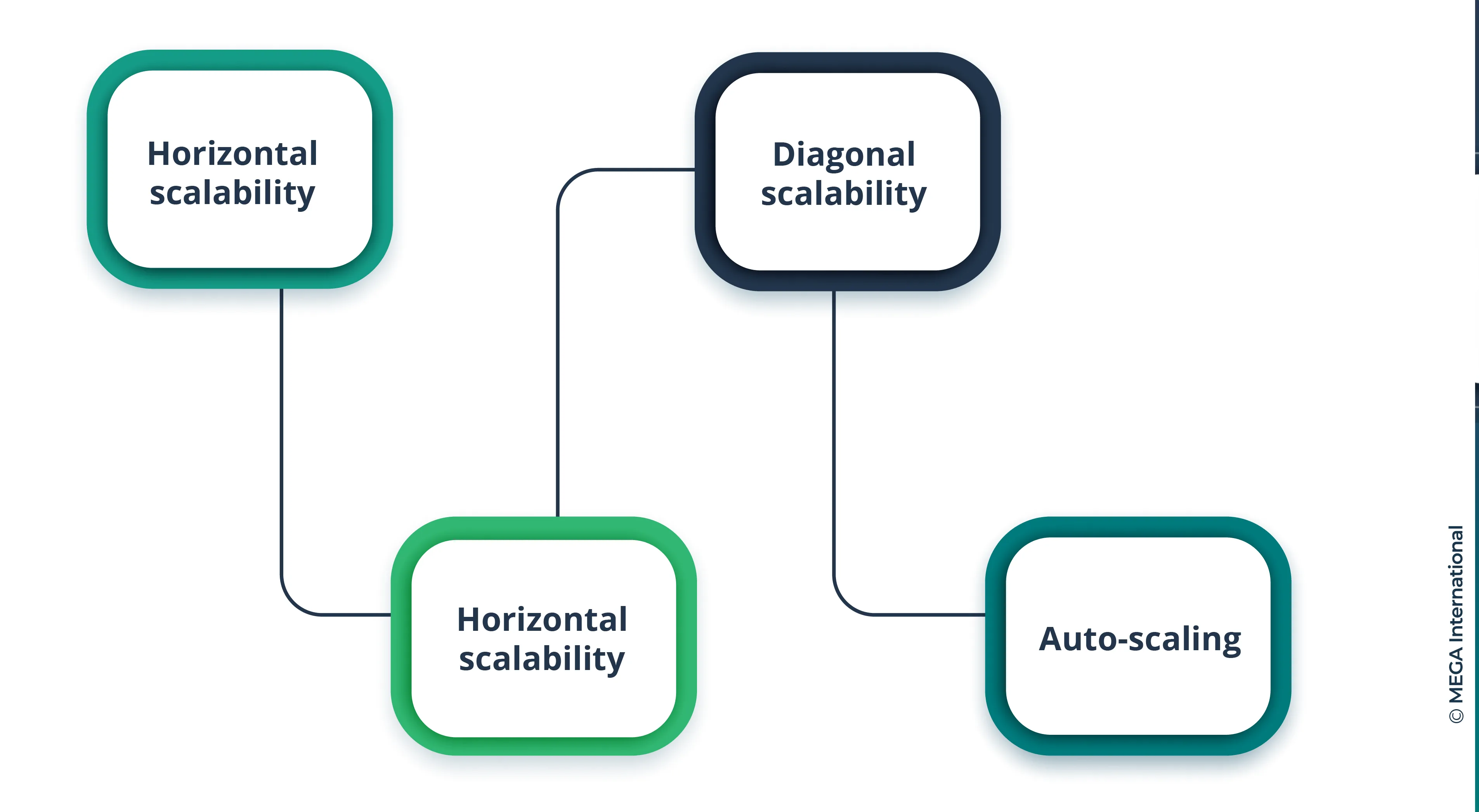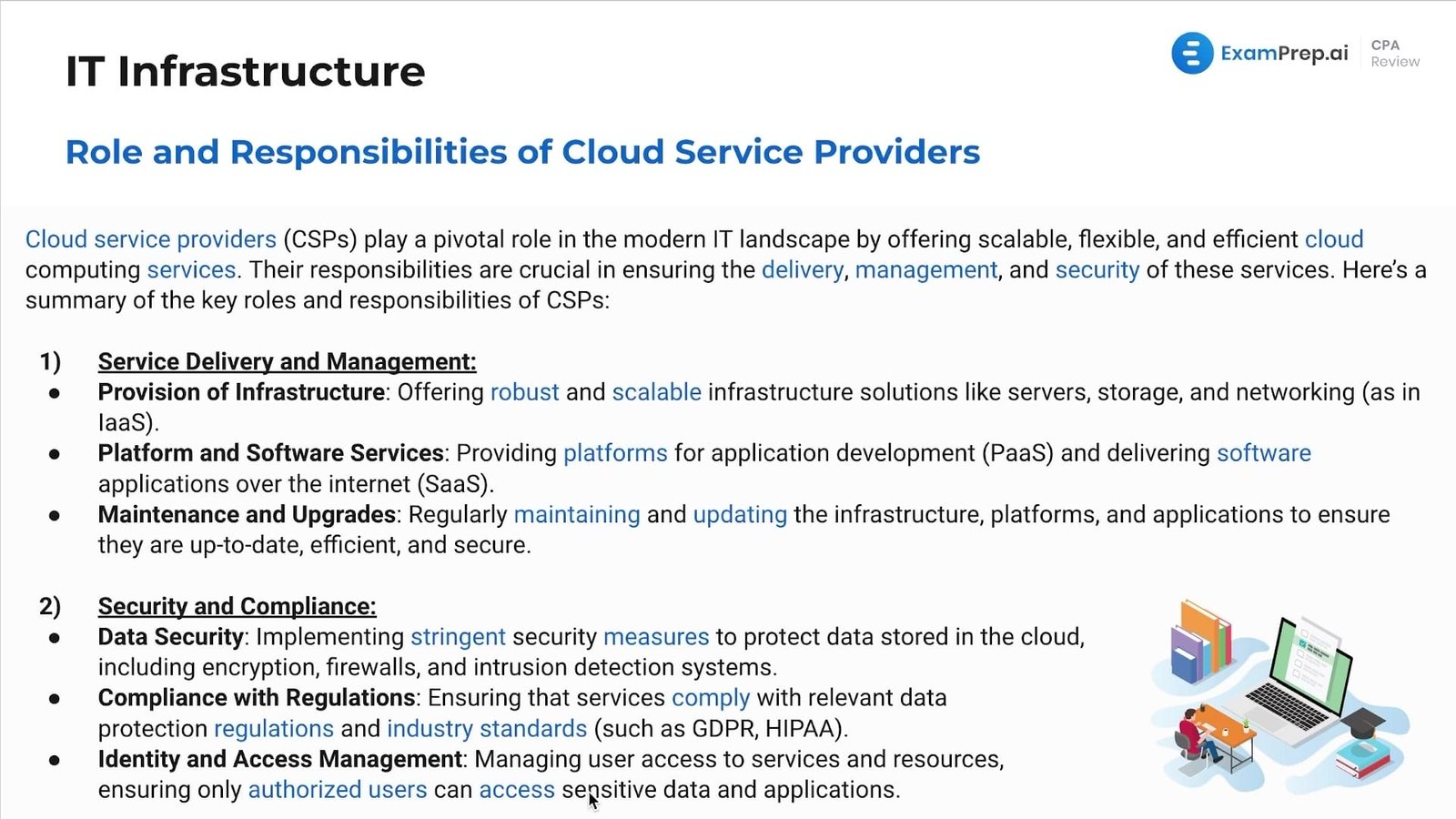Scalable cloud services software offers flexibility and efficiency. It supports business growth seamlessly.
Cloud services software is essential for modern businesses. It provides scalable solutions for storage and computing needs. Companies can easily adjust resources based on demand. This flexibility helps in managing costs effectively. Cloud software also ensures data security and accessibility.
Users can access their data from anywhere, at any time. This enhances productivity and collaboration among teams. Many cloud services offer user-friendly interfaces, making them easy to use. Businesses can integrate these services with existing systems. Choosing the right cloud provider is crucial for success. A good provider offers reliable support and regular updates. This ensures the software remains efficient and secure.
Amazon Web Services (aws)
Amazon Web Services (AWS) is a popular cloud services platform. It offers a wide range of services. Businesses of all sizes use it for various needs. AWS provides scalable, reliable, and inexpensive cloud computing services. Here, we will explore its key features, pros, and cons.
Key Features
- Elastic Compute Cloud (EC2): Provides scalable virtual servers.
- S3 Storage: Offers secure, durable, and scalable object storage.
- Relational Database Service (RDS): Simplifies database management tasks.
- Lambda: Allows running code without provisioning servers.
- CloudFront: Delivers content with low latency and high transfer speeds.
Pros And Cons
| Pros | Cons |
|---|---|
|
|
Microsoft Azure
Microsoft Azure is a powerful cloud platform. It offers a wide range of services for businesses of all sizes. From storage to machine learning, Azure provides scalable solutions. It is known for its reliability and security.
Key Features
Microsoft Azure offers many key features that make it stand out. Here are some of the most important ones:
- Virtual Machines: Create and manage virtual machines with ease.
- App Services: Host web apps and APIs with high availability.
- Azure Storage: Store large amounts of data securely.
- Azure SQL Database: Managed relational SQL database services.
- Machine Learning: Build and deploy machine learning models.
- Azure Kubernetes Service (AKS): Manage containerized applications.
Pros And Cons
Microsoft Azure has many pros and some cons. Here is a quick look:
| Pros | Cons |
|---|---|
|
|
Google Cloud Platform
The Google Cloud Platform (GCP) is a suite of cloud computing services. It is known for its scalability and robust infrastructure. GCP offers a range of services such as computing, storage, and machine learning. It is trusted by businesses of all sizes.
Key Features
GCP offers a variety of features that make it a top choice for cloud services.
- Compute Engine: Virtual machines that run on Google’s infrastructure.
- App Engine: Managed platform for building and deploying applications.
- Cloud Storage: Scalable object storage for any amount of data.
- BigQuery: Fully managed data warehouse for large-scale data analysis.
- Kubernetes Engine: Managed service for containerized applications.
Pros And Cons
| Pros | Cons |
|---|---|
|
|
GCP is a powerful and versatile cloud platform. It offers numerous features and benefits. Yet, it has some drawbacks. Businesses should weigh the pros and cons to decide if GCP is the right fit.

Credit: www.mega.com
Ibm Cloud
IBM Cloud is a robust and scalable cloud service platform. It offers a comprehensive suite of cloud services. Businesses can leverage its powerful infrastructure to enhance their operations. IBM Cloud is known for its flexibility, reliability, and extensive features.
Key Features
IBM Cloud stands out with its impressive features. Here are some key highlights:
- AI and Machine Learning: Integrates AI tools for smarter applications.
- Blockchain: Provides secure and transparent transactions.
- Data and Analytics: Offers advanced data analytics and management.
- Hybrid Cloud: Seamlessly integrates with on-premises and other clouds.
- Security: Ensures data protection with top-notch security measures.
Pros And Cons
Weighing the pros and cons can help in making an informed decision.
| Pros | Cons |
|---|---|
|
|
Oracle Cloud
Oracle Cloud stands out as a top choice for scalable cloud services. It offers a wide range of solutions for businesses of all sizes. Oracle Cloud is known for its robust infrastructure and comprehensive suite of applications.
Key Features
- High Performance Computing (HPC): Oracle Cloud provides HPC capabilities for demanding workloads.
- Integrated Security: It offers advanced security features to protect data.
- Autonomous Database: Oracle Cloud includes self-driving database technology.
- Hybrid Cloud: It supports hybrid cloud environments for flexibility.
- Comprehensive Analytics: Oracle Cloud includes powerful analytics tools.
Pros And Cons
| Pros | Cons |
|---|---|
|
|
Alibaba Cloud
Alibaba Cloud is a leading cloud services provider. It offers a range of scalable solutions. Businesses of all sizes use these solutions. It is known for its innovation and strong infrastructure.
Key Features
- Elastic Compute Service (ECS): Provides scalable computing capacity.
- Object Storage Service (OSS): Stores large amounts of data securely.
- Relational Database Service (RDS): Manages databases easily.
- Content Delivery Network (CDN): Speeds up content delivery globally.
- Big Data Solutions: Analyzes and processes big data efficiently.
Pros And Cons
| Pros | Cons |
|---|---|
|
|
Salesforce Cloud
Salesforce Cloud is a powerful and scalable cloud services software. It caters to businesses of all sizes. It offers extensive features for CRM, sales, and customer service. This makes it a popular choice among enterprises aiming to improve their processes.
Key Features
- CRM Integration: Salesforce Cloud integrates seamlessly with various CRM systems.
- Customizable Dashboards: Users can create dashboards tailored to their needs.
- Automated Workflows: Streamline tasks and processes with automation.
- Data Security: Salesforce ensures high-level data protection and compliance.
- Mobile Accessibility: Access Salesforce features on mobile devices.
Pros And Cons
| Pros | Cons |
|---|---|
|
|

Credit: www.slideteam.net
Sap Cloud Platform
SAP Cloud Platform is an open business platform designed to help companies innovate, integrate, and scale applications in the cloud. It supports various programming languages and frameworks, helping businesses to build and extend applications seamlessly.
Key Features
- Integration Capabilities: Connect on-premise and cloud-based systems.
- Development Tools: Access to various development environments.
- Extensibility: Enhance existing SAP applications with new functionalities.
- Data Management: Manage and analyze large volumes of data efficiently.
- Security: Advanced security features for protecting data and applications.
Pros And Cons
| Pros | Cons |
|---|---|
|
|
In summary, the SAP Cloud Platform offers powerful tools for businesses to innovate and grow. Its extensive features and integration capabilities make it a strong contender in the cloud services market. Balancing the pros and cons can help businesses make informed decisions.
Vmware Cloud
VMware Cloud is a leading name in the world of cloud services. It offers a robust, scalable, and secure platform for businesses. It is designed to meet diverse needs, whether for small startups or large enterprises. With VMware Cloud, companies can achieve greater efficiency and flexibility.
Key Features
VMware Cloud boasts an array of impressive features:
- Scalability: Easily scale resources up or down as needed.
- Security: Advanced security protocols to protect data.
- Integration: Seamless integration with existing VMware environments.
- Automation: Automate routine tasks to save time and reduce errors.
- High Availability: Ensure uptime and reliability with built-in redundancy.
Pros And Cons
| Pros | Cons |
|---|---|
|
|

Credit: www.mega.com
Frequently Asked Questions
What Are Scalable Cloud Services?
Scalable cloud services adjust resources based on demand. They help businesses efficiently manage workloads and costs. These services can scale up or down automatically.
Why Use Scalable Cloud Software?
Scalable cloud software offers flexibility and cost-efficiency. It ensures optimal performance during peak times. It also reduces costs during low demand periods.
How Do Scalable Cloud Services Work?
Scalable cloud services monitor usage and adjust resources automatically. They use algorithms to predict and manage resource needs. This ensures consistent performance.
What Benefits Do Scalable Cloud Services Offer?
Scalable cloud services enhance efficiency, reduce costs, and improve performance. They provide reliability and flexibility. They also support business growth by adapting to changing needs.
Conclusion
Choosing the right scalable cloud service is essential for growth. Our reviews provide clear insights to help you decide. Select the best option to meet your needs. Stay ahead with reliable and efficient cloud solutions. Embrace the future with confidence and ease.
Thank you for reading our reviews.





